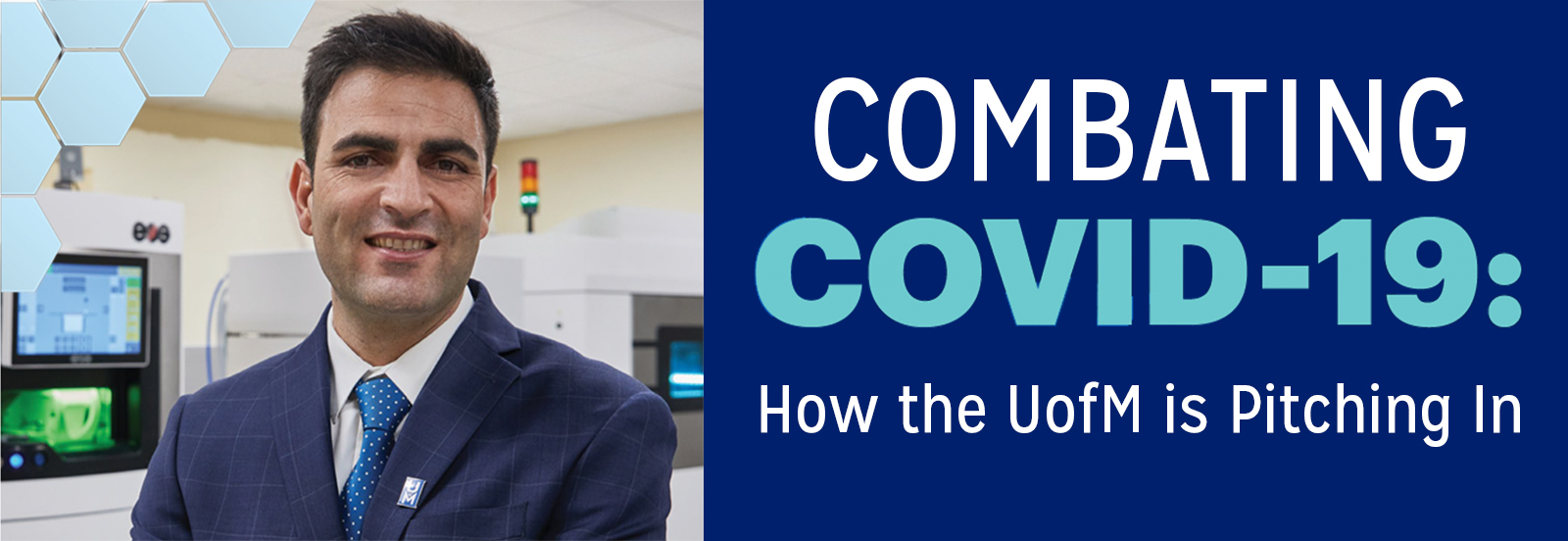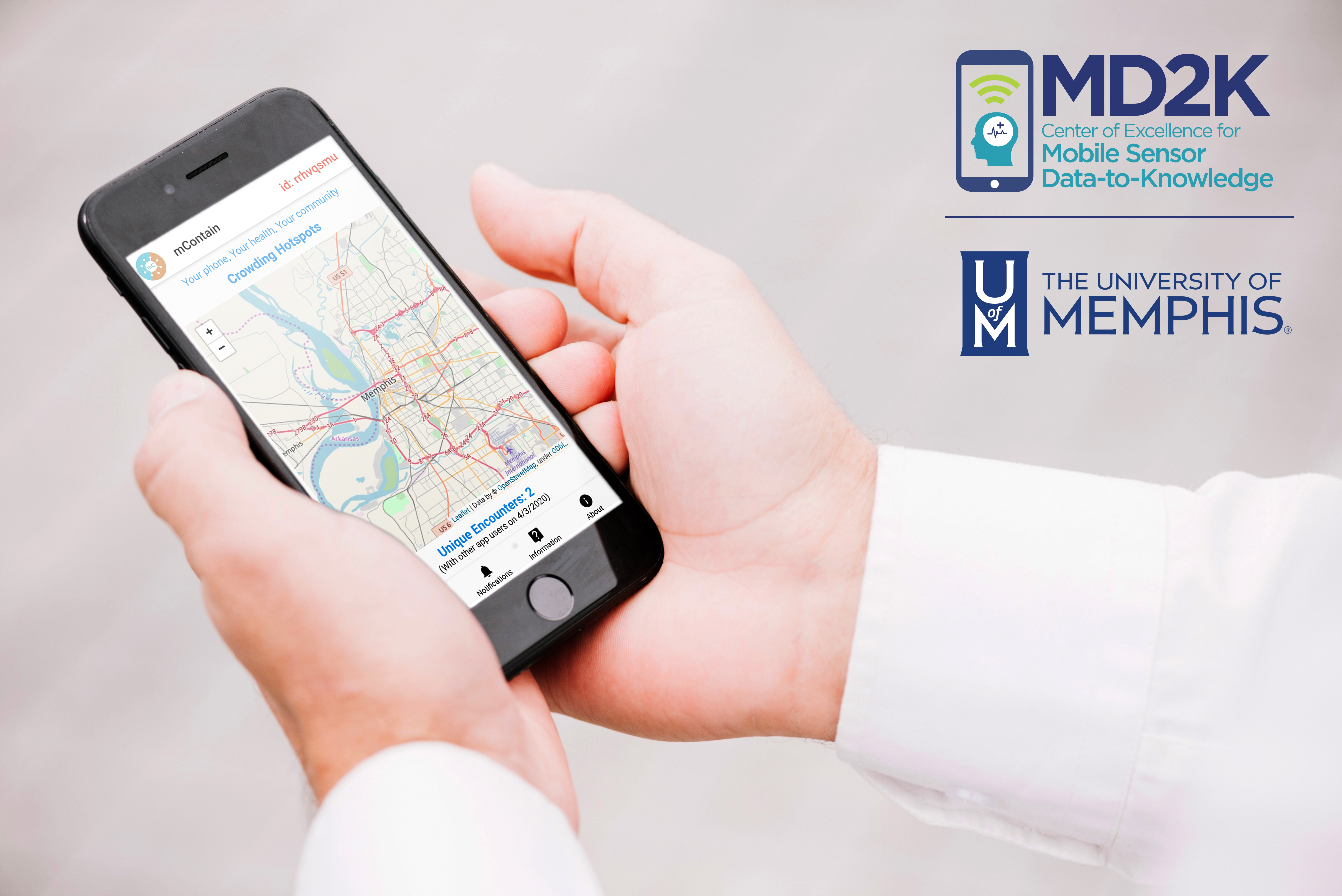By Trent Shadid
PRINTING TO PROTECT
To aid in combating COVID-19, the University of Memphis fabricated face-shield frames using its 3D printers in its state-of-the-art Metal Additive Manufacturing Lab at Herff College of Engineering. The lab’s printers were in use around the clock creating frames that would be provided to hospitals in the State of Tennessee, including Le Bonheur Children’s Hospital.
Dr. Ebrahim Asadi, the lab’s director and assistant professor of Mechanical Engineering, and his staff delivered 135 3D-printed face-shield frames in March.
Asadi delivered 83 frames to the Tennessee College of Applied Technology in Jackson on March 31. Those were then delivered to the Tennessee Emergency Management Agency (TEMA) to be distributed among hospitals and clinics in need. Asadi also delivered 52 frames to Le Bonheur on March 27.
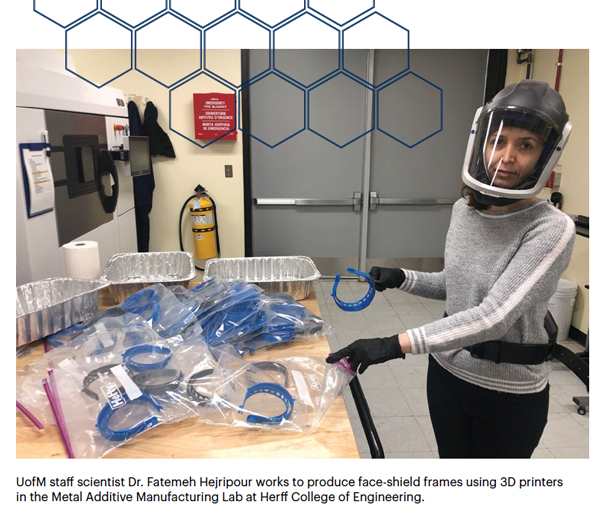 “This is a very special task to me that I can help the health care professionals who
are fighting this pandemic on the front line,” said Asadi. “This is one of the moments
when you say to yourself you should do something to help. I am sure that many people
feel that way, and I was lucky there was something that I could do in addition to
social distancing and self-quarantine, which are equally important to keep everybody
safer.”
“This is a very special task to me that I can help the health care professionals who
are fighting this pandemic on the front line,” said Asadi. “This is one of the moments
when you say to yourself you should do something to help. I am sure that many people
feel that way, and I was lucky there was something that I could do in addition to
social distancing and self-quarantine, which are equally important to keep everybody
safer.”
Le Bonheur, which had enough supplies for its staff at the time of receiving the masks, was being proactive for the future.
“We appreciate the support of community partners like the University of Memphis during this uncertain time,” said Dr. Barry Gilmore, chief medical officer of Le Bonheur Children’s Hospital. “Their offer of help means so much to our clinical experts who are working around-the-clock to help keep kids healthy and well.”
The UofM Metal Additive Manufacturing Lab produced the masks using five commercial-grade 3D printers. Each printer has the capability to produce up to four frames at a time, taking two to three hours for each run. The first successful prototypes were completed the weekend of March 20-22. Beginning March 23, Asadi started activating as many printers as he could on campus to increase the capacity.
Across the State of Tennessee, universities began printing face shields in response to a call from Mike Krause, executive director of the Tennessee Higher Education Commission. At the UofM, a team of five staff members and students led by Asadi began working immediately. Other staff included Dr. Fatemeh Hejripour, staff scientist; PhD candidates Behzad Fotovvati and Michael Fitzmire; and Matthew Markham, a PhD candidate who volunteered to work daily.
“All of us need to do our part in supporting doctors and medical workers on the frontline of this pandemic,” said Dr. Richard Sweigard, dean of the Herff College of Engineering. “I’m very proud that Herff engineers and the entire UofM community came together so quickly to produce the face shields that will keep healthcare workers and patients safe.”
May 4 | Update: Herff College of Engineering partners with MCR Safety and Precision
Plastics to produce free face shields for health care workers
The partnership will provide the face shields free of charge to first responders,
health care facilities and medical professionals with need. More details on the partnership>
NURSING DONATES SUPPLIES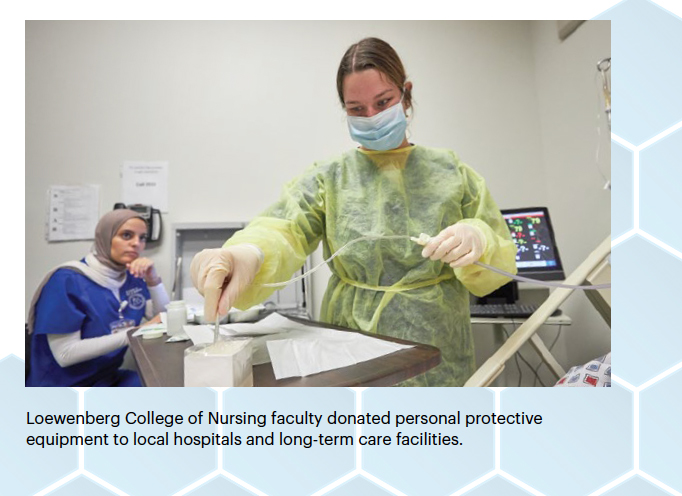
Faculty within the Loewenberg College of Nursing donated personal protective equipment (PPE) to local hospitals and long-term care facilities. Delivered in late March, the equipment is critical for keeping front-line health care workers safe while caring for COVID-19 patients. Additionally, the college established a designated email helpline to submit questions in an effort to support students, faculty and staff. The email is staffed by experienced nursing and public health faculty who respond to any COVID-19 questions.
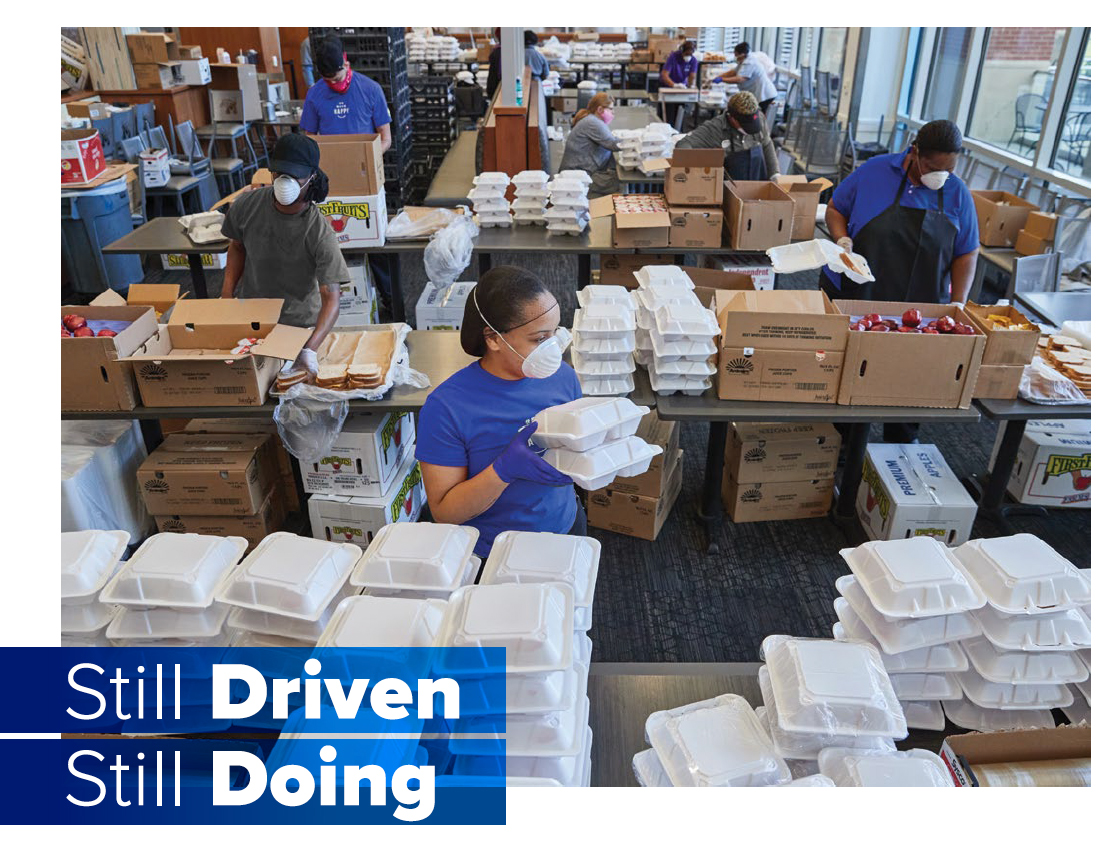
UofM, CHARTWELLS PROVIDE LUNCHES
In late March, UofM food service partner Chartwells took on an effort to help provide for Shelby County Schools students in need. Meals in to-go containers began being compiled in the University Center dining hall before being dispersed by the YMCA to families throughout Shelby County. By the end of March, Chartwells was providing an average of 7,000 meals per day through the University with 10,000 being the most in a single day.
April 28 | Update: 173,000 meals provided by YMCA, Chartwells and UofM partnership
for Shelby County students during crisis
The YMCA, Chartwells and University of Memphis partnership has provided 173,000 meals
for Shelby County students during the COVID-19 public health emergency. Read more about the partnership>
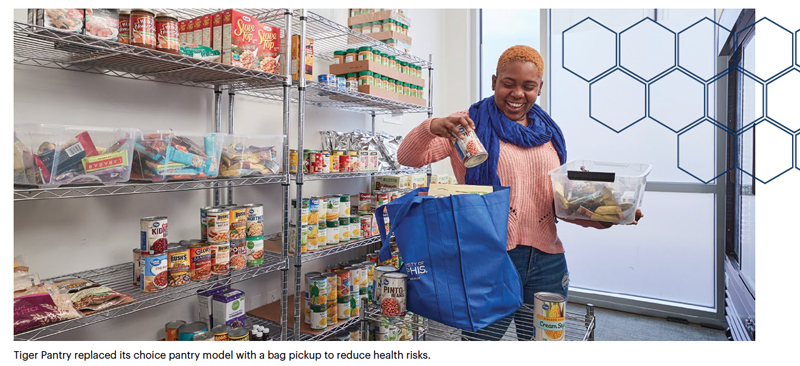 TIGER PANTRY REMAINS OPEN
TIGER PANTRY REMAINS OPEN
The UofM Tiger Pantry replaced its choice pantry model with a bag pickup to reduce health risks. The University Center atrium transformed into a pick-up location for bags and boxes that contain up to 14 days of food. Tiger Pantry also accounted for students with specific dietary needs or restrictions, and allowed students to schedule pick-up times online.
MD2K DEVELOPS TRACKING APP
The MD2K Center of Excellence, headquartered at the UofM, launched a free mobile app to help track social distancing during the COVID-19 outbreak. The app — mContain — was developed in collaboration with the Memphis/Shelby County COVID-19 Task Force. mContain leverages location and Bluetooth technologies in smartphones and sends notifications to users if they have had a recent encounter with a COVID-19 positive individual. The app reduces the chance of community transmission by providing an early warning to users who may be at risk of infection.

